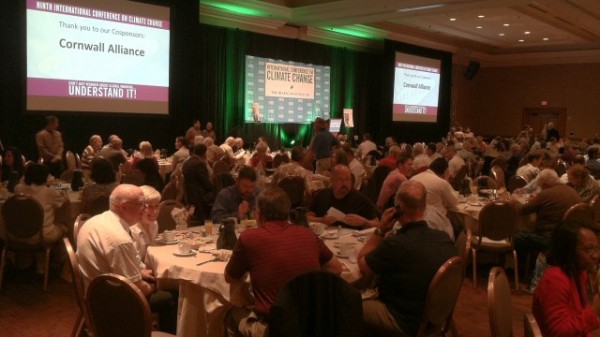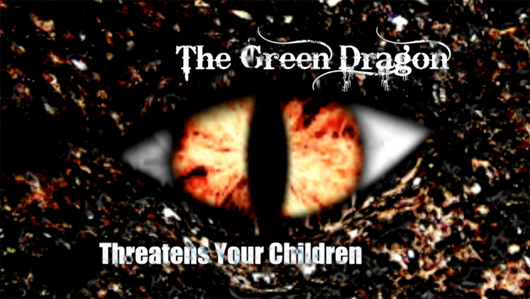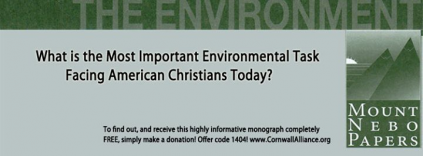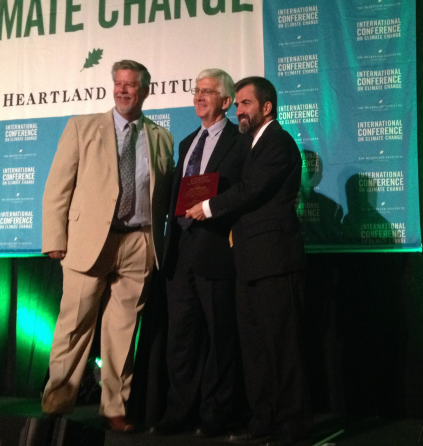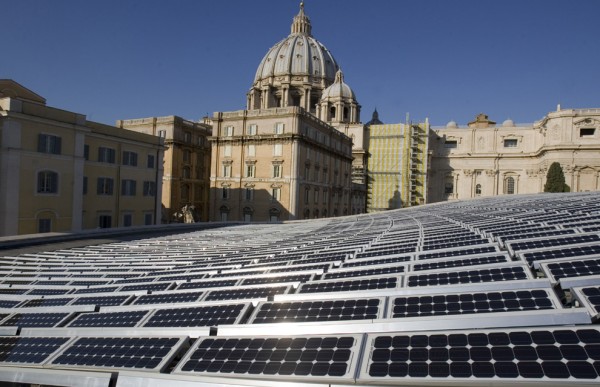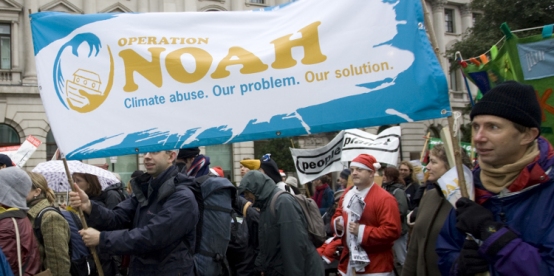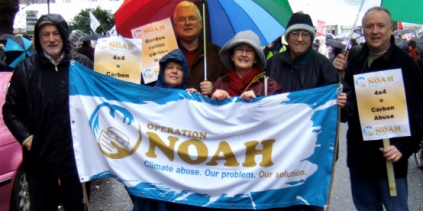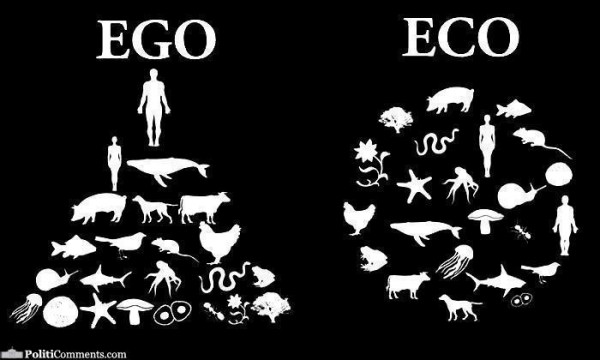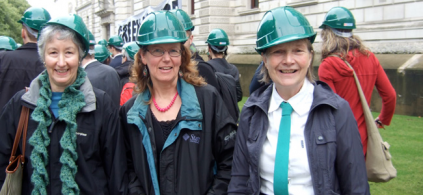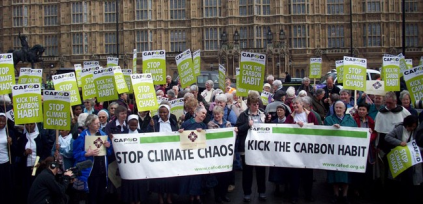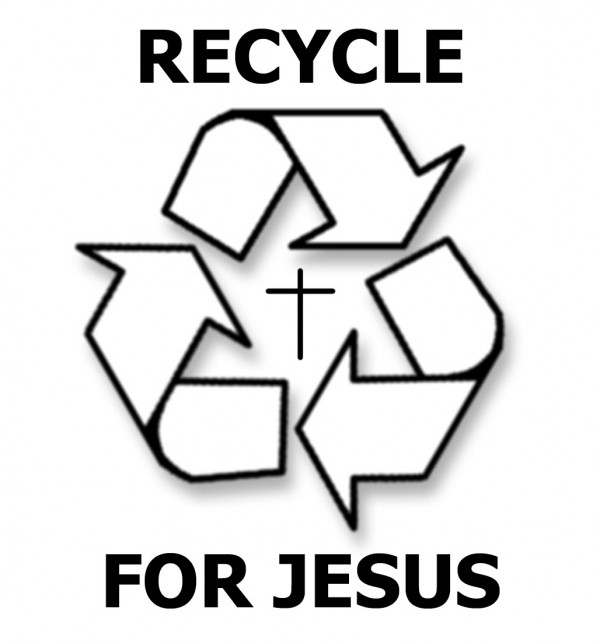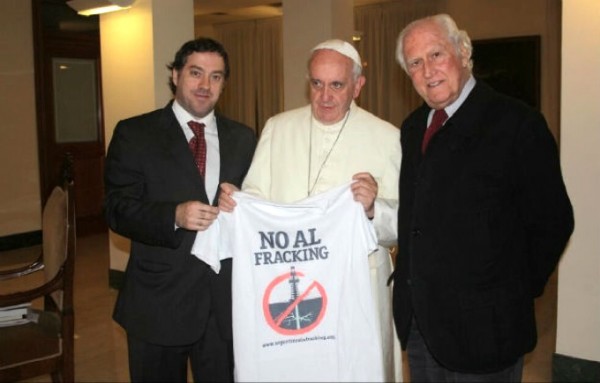Recycle for Jesus: Interview with EcoChristians
Keywords: Bjorn Lomborg, brian fikkert, Bron Taylor, charity, christians, civil radical discourse, climate change, conspiracy, Cornwall Alliance, Cornwall Alliance for the Stewardship of Creation, Dambisa Moyo, Deepak Lal, deforestation, disobedience, Dr Mike Hulme, E. Calvin Beisner, ecology, economy, empower, free trade, global warming, GMO, government, health care, Hernando de Soto, Indur M. Goklany, Julian L. Simon, Nancy R. Pearcy, Nongovernmental International Panel on Climate Change, Paul Driessen, Peru, pesticides, Politics, Poverty and Progress, property rights, radical, Reformed Evangelical Christian, regulation, Robert H. Nelson, sin, Socialism, steve corbett, stewardship, University of East Anglia, water pollution
ECOCORE interviews religious groups Operation Noah and Cornwall Alliance.
Recycle for Jesus: Interview with EcoChristians
Christian environmental activism is a relatively marginal phenomenon, one that exists in the precarious space between Nature, Science, and Faith. For the disaster issue, Ecocore interviewed two different Christian Environmental groups: The Cornwall Alliance and Operation Noah.
ECOCORE: How and why did the Cornwall Alliance begin?
Cornwall Alliance: One of the points in the Cornwall Alliance Agenda was that the government is given too much authority. However, some of that authority should be used to empower the poor by allowing them more economic opportunities. As Peruvian economist Hernando de Soto has pointed out in his book The Mystery of Capital, one of the most important steps toward empowering the poor is recognizing, protecting, and legally documenting property rights, so that property can become capital available for entrepreneurial investment. Other important institutional factors empowering the poor are the rule of law, limited government, free trade, and minimizing the regulatory steps needed to start and operate a business. For further information about this, see that book and de Soto’s The Other Path: The Invisible Revolution in the Third World, or Deepak Lal’s Poverty and Progress: Realities and Myths about Global Poverty.
Ecocore: Would you identify as christian libertarian?
CA: A Christian, yes—an orthodox Protestant Reformed Evangelical Christian. A libertarian, no—rather, a Classical Liberal on economic policy.
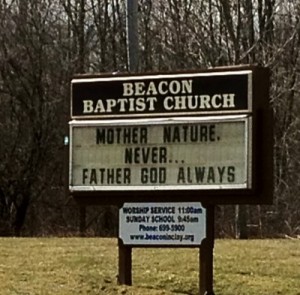
Ecocore: How does a faith-based institution promote environmental stewardship globally?
CA: None can provide it globally. We must all act locally, recognizing our limitations. We can have wider influence, though, through educational efforts, such as the Cornwall Alliance’s and presence in social media such as Facebook and Twitter.
Ecocore: Why do you think climate change is a conspiracy orchestrated by “radical environmentalists”?
CA: I don’t think of it as a conspiracy, and radical environmentalists aren’t the only ones who embrace the idea of dangerous, manmade global warming—many others do, too. That some people who embrace it are motivated in that direction in part by their political desires is clear enough from the evidence, e.g., Dr. Mike Hulme, former Professor of Climate Change at the University of East Anglia and a founder of the Climatic Research Unit there, who has been extremely influential within the IPCC. He repeatedly expressed in his book Why We Disagree About Climate Change, that climate change provides a rationale for pursuing the replacement of capitalism with more socialistic structures for international and national economic order.
Ecocore: What do you think of other Christian organisations who identify as environmental activists?
CA: I’m grateful that they’re paying attention to the subject and would agree with them that we need to be good stewards of the earth, not abusing it but, as I would put it, enhancing its fruitfulness, beauty, and safety, for the glory of God and the benefit of our neighbors. On some specific issues we would differ in our understanding of the scientific evidence as to the presence and relative severities of problems and of the economic and political means of addressing them. Those need individual discussion.
Ecocore: How do you think consumerist culture and economic progress help the poor and the environment?
CA: I don’t think consumerist culture helps the poor or the environment and generally find the term consumerism to be pejorative and prejudicial, not promoting civil and rational discourse. Economic progress—raising people out of severe poverty—does. A clean, healthful, beautiful environment is a costly good, and wealthy people afford more costly goods than poor people. When you’re worried about putting food on the table, clothes on your back, and a roof over your head, you can’t allocate much to preventing deforestation, smog, water pollution, and the like. When one is able to procure adequate food, clothing shelter, education, health care, transportation, etc., then one has the opportunity to allocate resources to restoring and protecting the natural environment.
Ecocore: Cornwall Alliance supports certain genetically modified organisms and the use of pesticides. How does this coincide with your religious views?
CA: There is no such thing as a risk-free activity: the odds of an American’s dying from a fall in the bathtub are higher than from a coal mining accident. We consider that the benefits derived from some GMOs and pesticides, prudently used, exceed the risks.
Ecocore: The Agenda states that investment in property ownership is a priority, could you explain why that is important?
CA: One has a natural incentive to take good care of what one owns; far less to take care of what one does not own (as many economists put it, nobody washes a rented car, and we find more graffiti on public bathroom walls than on the walls of our bathrooms at home.) Further, property ownership is critical to entrepreneurship, which is critical to overcoming poverty, which is critical to enhancing environmental quality.
A fundamental principle underlying our Agenda is “the encouragement of individuals to serve one another in ways that will unleash the power of the human spirit and contribute to reversing the results of past disobedience that started in the Garden of Eden (Genesis 3).”
Additionally, the Agenda attributes much environmental devastation to this disobedience. How does the conscious desire to “reverse the results” inform the Cornwall Alliances’ belief in economic development and human freedom? We recognize that human sin results in many different problems, from the breakdown of families to oppressive governments to wars and crimes, etc. Among those problems are various abuses of our natural surroundings. Correcting those problems is a costly endeavor, and both responsible human freedom (within the bounds of God’s moral law summarized in the Ten Commandments) and economic development (which rests in large part on human freedom) enable people to afford that cost.
Ecocore: The Cornwall Alliance supports local businesses and entrepreneurial initiatives within poorer communities. What role should wealthier communities play to support these communities in their efforts?
CA: Charitable giving is important and is most effective when it is privately conducted and non-patronizing (see Steve Corbett and Brian Fikkert’s When Helping Hurts: How to Alleviate Poverty Without Hurting the Poor … and Yourself) and avoids the corruption so common in developing-world governments (about which see, e.g., Dambisa Moyo’s Dead Aid: Why Aid Is Not Working and How There Is a Better Way for Africa). But for actually raising large numbers of people out of poverty, by far the most important elements are free trade—including the abolition of trade barriers that protect businesses in wealthy countries from competition by businesses in poorer countries—and capital investment in developing countries.
Ecocore: How does Cornwall Alliance envision the future?
CA: The Cornwall Alliance for the Stewardship of Creation aspires to a safe, abundant, beautiful world in which:
• human beings, reconciled to God by grace through faith in Jesus Christ, care wisely and humbly for all creatures, first and foremost for their fellow human beings, recognizing their proper place in the created order;
• objective moral principles—not personal prejudices—guide moral action;
• right reason (including sound theology and the careful use of scientific methods) guides the stewardship of human and ecological relationships;
• liberty as a condition of moral action is preferred over government-initiated management of the environment as a means to common goals;
• the relationships between stewardship and private property are fully appreciated, allowing people’s natural incentive to care for their own property to reduce the need for collective ownership and control of resources and enterprises, and in which collective action, when deemed necessary, takes place at the most local level possible;
• widespread economic freedom—which is integral to private, market economies—makes sound ecological stewardship available to ever greater numbers; and
• advances in agriculture, industry, and commerce not only minimize pollution and transform most waste products into efficiently used resources but also improve the material conditions of life for people everywhere.
We would like to challenge you to the 10 books that have become the most fundamental to the Cornwall Alliance. As always, some outstanding books were left out.
1. The Bible
2. E. Calvin Beisner, Where Garden Meets Wilderness: Evangelical Entry into the Environmental Debate
3. Paul Driessen, Eco-Imperialism: Green Power, Black Death
4. Indur M. Goklany, The Improving State of the World: Why We’re Living Longer, Healthier, More Comfortable Lives on a Cleaner Planet
5. Bjørn Lomborg, The Skeptical Environmentalist and (ed.) Solutions for the World’s Biggest Problems
6. Robert H. Nelson, The New Holy Wars: Economic Religion vs. Environmental Religion in Contemporary America
7. Nongovernmental International Panel on Climate Change, Climate Change Reconsidered II, volume 1, Physical Science, volume 2, Biological Impacts
8. Nancy R. Pearcey and Charles B. Thaxton, The Soul of Science: Christian Faith and Natural Philosophy
9. Julian L. Simon, The Ultimate Resource 2 and (ed.) The State of Humanity
10. Bron Taylor, Dark Green Religion: Nature Spirituality and the Planetary Future
A Brief History of the Cornwall Alliance in Highlights
March, 2000: The Interfaith Council on Environmental Stewardship first published The Cornwall Declaration on Environmental Stewardship, which 1,500 religious leaders from around the world and many laymen quickly endorsed.
August, 2005: We began as The Interfaith Stewardship Alliance, adopting The CornwallDeclaration on Environmental Stewardship as our founding document.
November, 2005: We published our first major study, An Examination of the Scientific, Ethical, and Theological Implications of Climate Change Policy.
January, 2011: We published our first book, James Wanliss’s Resisting the Green Dragon: Dominion, Not Death.
July, 2012: To help evangelicals on many battlefronts to labor more strategically and effectively to reassert the sanctity of human life and sexuality, the beauty and centrality of marriage, the goodness of human multiplication, and the dignity of human work and godly dominion over the Earth, we launched our most ambitious initiative to date, In His Image, a multi-year effort to educate evangelicals about the integrally related threats, arising from the denial of the doctrines of Genesis 1:27–28.
Throughout this time, we have published articles in newspapers, magazines, and online sites, and been frequent guests on radio and television talk shows across the United States and around the world;provided helpful answers to individuals’ questions about the theology, ethics, science, and economics of environment and energy policy and economic development for the poor; done research to stay abreast of current developments.
ECOCORE interviews Dr. Isabel Carter, Chair of Operation Noah with inputs from Bishop David Atkinson, theological team leader, and trustees Ruth Jarman and Nicky Bull.
ECOCORE: How and why did Operation Noah start?
Operation Noah: ON began in 2004 as an offshoot of the Christian Ecology Link. It was felt there was a real need for an ecumenical Christian organization to be able to focus on awareness-raising and campaigning around issues relating to climate change.
Ecocore: Can you tell us more about your many initiatives towards what you have called “low-carbon Christian living”, like Reclaim Christmas, Carbon Exodus and Oil Fast?
ON: Full details of all these are on our website, operationnoah.org ‘Reclaim Christmas’ seeks to help people cut through the consumer excess that surrounds Christmas and focus on what it is really about – a celebration of our Savior born into poverty as a refugee. ‘Carbon Exodus’ helps people to assess their carbon footprint and lifestyles to reduce their impact on this fragile earth. ‘Oil fast’ encouraged people to see if they can live for a day or more without carbon-based products. All our initiatives or campaigns provide our supporters with fresh ideas for awareness-raising and taking action within the churches. We back these up with bible studies for use in sermons or bible study discussion groups.
Ecocore: How do you see yourselves in contrast to the secular positions addressing climate change and environmental activism?
ON: Our focus is essentially to follow Jesus’ commandment to love our neighbors as ourselves – in that our neighbors are also global, and span future generations. Those whose lives will be impacted most by climate change are ‘the poor’; those least able to cope, to adapt and to recover from its impacts.
“Christians understand God’s relation to creation in three ways. ¬†All reality comes from God the Father; the flourishing of the earth and its future are foundational to the mission of God (and therefore to the Church’s mission). ¬†God embraces material reality in Jesus in whom all things hold together (Colossians 1:17).”
Ecocore: And what do you think about the many Christian organisations who deny climate change or do propaganda to cast a light of conspiracy upon environmental activism?
ON: Totally baffled – but we accept well-researched and peer reviewed scientific fact as just that – fact and don’t feel we have a choice about responding. Jesus wept over those who rejected his message and ignored the prophets. Climate scientists (many of them Christians) are among today’s prophets.
Ecocore: Do you think global warming is not part of God’s unfathomable plan?
ON: No definitely not – this kind of argument is a ‘cop out’. We have been given freewill – do we regard murder, genocide, cancer, and cyclones as part of God’s plan? We have God-given responsibilities towards the poor, towards our neighbors, and as stewards of God’s creation. All of these responsibilities come together in responding to the urgency of climate change.
Ecocore: It is very interesting that you pair your campaigning and activist work to a commitment to theological speculation around nature, environmentalism and ecology. What are the biggest theological challenges posed by climate change?
ON: Among the theological issues raised by climate change (N.B not just ‘global warming’) are the following (and all these are spiritual or theological questions):
• Our human relationship to the rest of creation: are we masters of nature, or at the mercy of nature, or are we, with all creation, dependent on God and interdependent with each other, and yet with a particular human responsibility under God to care for the earth which is the Lord’s?
• How much trust do we place in technology and the assumption of unlimited economic growth?
• What are the responsibilities of the present generation towards those who follow?
• What are our moral responsibilities to the poorest and most disadvantaged communities, who have done least to contribute to climate change and are least able to adapt?
• What responsibility do we have for husbanding earth’s scarce resources?
• Are we capable of the international cooperation that is needed, or are sin and selfishness too much part of the picture?
• How do we handle our fears and vulnerabilities?
Ecocore: In your “Declaration”, you state that despite the strong probability of very serious effects from global warming, despair is not an option for Christians. In what ways do you advise Christians to strengthen their hope in the face of this worsening crisis? Does this apply to non-christians?
ON: Hope is not blind optimism that everything will be OK. Hope is trust in the loving faithfulness of God that this is God’s world and God is working out his purposes of grace. That does not take away our responsibilities to work for the coming of God’s kingdom- rather it should motivate us towards transformative action.
Ecocore: Within the Climate Science Briefing for Christians, Operation Noah encourages Christian commitment to justice. This justice involves adaptation necessitated by climate change. What is the connection between social injustice and climate change for you?
ON: See 3 above. How can we love our neighbours if we ignore the impact on their livelihoods and future well-being that climate change brings (rising sea levels, drought, flooding, mudslides or the increasing severity of cyclones).
Ecocore: How does Operation Noah envision the future?
ON: Our trustees and staff believe that the ‘window’ for global action is passing – we are very close to reaching the point at which mitigation of climate change will be too late – and all we can do will be to adapt to climate change and the potential tipping points that may be triggered. Such urgency drives us on to do all we can while we can.
Ecocore: What are 10 fundamental books for Operation Noah?
ON: 1. Mark Lynas, The God Species (Fourth Estate, 2012)
2. Michael Northcott, A Moral Climate (Darton, Longman & Todd, 2007)
3. Michael Northcott, A Political Theology of Climate Change (SPCK, 2014)
4. Alastair McKintosh, Hell and High Water (Birlinn, 2008)
5. George Marshall, Carbon Detox (Octopus, 2007)
6. David Atkinson, Renewing the Face of the Earth (Canterbury Press, 2008)
7. Nicola L. Bull & Mark McAllister, Sustainable Faith: A green gospel for the age of climate change (Lulu, 2014)
8. Dave Bookless, Planetwise (IVP, 2008)
9. Ruth Valerio, ‘L’ is for Lifestyle (IVP, 2008)
10. Martin J. Hodson & Margot R. Hodson, Cherishing the Earth: How to care for God’s creation (Monarch, 2008)
A Brief History of Operation Noah in Highlights
2004: Operation Noah is founded
Since its launch in 2004, Operation Noah has worked in many ways to raise awareness of climate change and to equip Christians to take a stand on this vital issue. These are some of our past achievements.
Theology
For our annual lecture in 2009, the then Archbishop of Canterbury, Dr Rowan Williams, spoke on ‘The Climate Crisis: A Christian response’.
In 2012, our theology think-tank produced the Ash Wednesday Declaration, a theological basis for a Christian response to climate change.
Campaigns
From 2008 – 2009 Operation Noah’s ARK campaign events around the UK brought together churches and other faith groups, local schools, local authorities and campaigning organizations including WWF, Oxfam and Christian Aid. As a symbolic step towards low-carbon Christian living, we launched our Reclaim Christmas campaign in the autumn of 2008.
In 2010 a further project encouraging radical lifestyle changes was the Carbon Exodus and associated Oil Fast initiative. Operation Noah took part in a joint campaign in 2013 to lobby for reforms on the UK government’s Energy Bill.
Prayer
Operation Noah worked in partnership with other Christian agencies in organizing the very successful ecumenical Wave Service in December 2009. In subsequent years we joined forces with Christian Ecology Link to organize ecumenical climate services to support the Campaign against Climate Change national demonstrations.
Communication
In 2012 we commissioned Christian comedian Paul Kerensa to write a stand-up comedy routine about climate change. He performed his climate change set to a full tent at the Greenbelt festival that year.
Education and young people
Outreach work between 2006 and 2009 included visits to around 25 schools around the country, reaching 3,500 young people. We also wrote a play about climate change for young people to perform.




